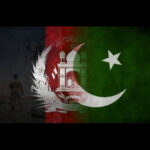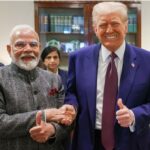Washington Confirms Covert Authorization
US President Donald Trump has confirmed that he granted the Central Intelligence Agency (CIA) permission to carry out covert operations inside Venezuela, igniting strong condemnation from the South American nation’s leadership.
The revelation comes amid an escalating US military presence in the Caribbean, where American forces have launched at least five strikes in recent weeks on boats allegedly carrying narcotics. The operations, which resulted in 27 fatalities, have been described by UN-appointed human rights experts as “extrajudicial executions.”
Speaking from the White House, President Trump declared that the United States was “looking at land” as it considered additional measures to target drug cartels operating in the region.
Maduro Appeals for Peace Amid Tensions
Venezuelan President Nicolás Maduro, whose legitimacy remains contested following disputed elections last year, made a televised appeal calling for peace with the United States.
The growing American military presence near Venezuelan waters has intensified concerns in Caracas of a potential armed confrontation.
According to The New York Times, Trump’s authorisation enables the CIA to act independently or in coordination with broader US military efforts in Venezuela. While it remains unclear whether the CIA has initiated any missions, the agency’s long history of clandestine operations in Latin America has raised alarm among regional governments.
Trump Defends His Decision
During a press briefing in the Oval Office on Wednesday, joined by FBI Director Kash Patel and Attorney General Pam Bondi, Trump faced direct questions about the CIA authorisation report.
When asked, “Why did you authorise the CIA to go into Venezuela?” the president replied candidly:
“I authorised for two reasons really. Number one, they [Venezuela] have emptied their prisons into the United States of America. And the other thing are drugs. We have a lot of drugs coming in from Venezuela, and a lot of the Venezuelan drugs come in through the sea. We’re going to stop them by land also.”
In a rare admission from a sitting US president regarding covert intelligence operations, Trump emphasized that his motive was to curb drug trafficking and protect US borders.
Venezuela, however, plays only a minor role in the regional narcotics trade, according to analysts. When pressed on whether the CIA’s goal included regime change or the removal of Maduro, Trump refused to elaborate, saying:
“Wouldn’t it be a ridiculous question for me to answer?”
Continued Strikes and Growing Backlash
In the most recent US strike on Tuesday, six people were killed after a boat was hit near Venezuela’s coast.
On his social media platform Truth Social, Trump defended the strike, stating that “intelligence confirmed the vessel was trafficking narcotics, associated with narcoterrorist networks, and transiting along a known drug route.”
However, US officials have not disclosed the identities of those killed or specified which drug-trafficking organisation was allegedly operating the vessel.
Venezuelan Response: “No to CIA-Orchestrated Coups”
In a televised national address on Wednesday night, Maduro condemned the CIA authorisation and warned against escalation.
“No to regime change, which reminds us of the endless, failed wars in Afghanistan, Iraq, Libya, and so on,” he declared.
“No to CIA-orchestrated coups d’état. Listen to me—no war, yes peace, the people United States.”
Earlier in the day, Maduro ordered military exercises in Petare, a suburb of Caracas, and in Miranda state, mobilising troops, police, and civilian militias to protect Venezuela’s sovereignty.
Venezuelan Officials Condemn US “Aggression”
Foreign Minister Yván Gil issued a stern statement on Telegram, denouncing the US president’s “warmongering and extravagant declarations.”
“We view with extreme alarm the use of the CIA, as well as the military deployments announced in the Caribbean, which amount to a policy of aggression, threat, and harassment against Venezuela,” Gil said.
Massive US Military Deployment in the Caribbean
The Trump administration has deployed eight warships, a nuclear-powered submarine, and fighter jets to the Caribbean as part of what the White House describes as a crackdown on drug smuggling.
A leaked memo circulated among US lawmakers reportedly confirmed that Washington now considers itself engaged in a “non-international armed conflict” with transnational drug cartels.
Accusations and Denials
US authorities have long accused Maduro of being tied to the Cartel of the Suns, a network allegedly involving high-ranking Venezuelan military and security officials in narcotics trafficking. Maduro has repeatedly denied these allegations, calling them fabricated pretexts for foreign intervention.
Experts Warn of Escalation
Former CIA paramilitary officer and Assistant Undersecretary of Defense Mick Mulroy told the BBC that any covert operation would require a formal presidential finding specifying the mission’s scope.
“In order to conduct covert action, there needs to be a presidential finding for the CIA specifically authorising it, with defined actions identified,” Mulroy said.
He added that such a move would represent a “substantial escalation” in the United States’ counter-narcotics campaign—comparing it to a real-life version of the film Sicario, which depicts secret US operations targeting drug cartels.
Global Reaction and Mounting Uncertainty
The revelation has drawn sharp criticism from human rights organisations and international observers, many warning that covert US operations risk destabilising Venezuela and the wider region.
As both Washington and Caracas increase their military preparedness, fears are growing that the situation could spiral into a new phase of confrontation reminiscent of Cold War-era interventions in Latin America.






